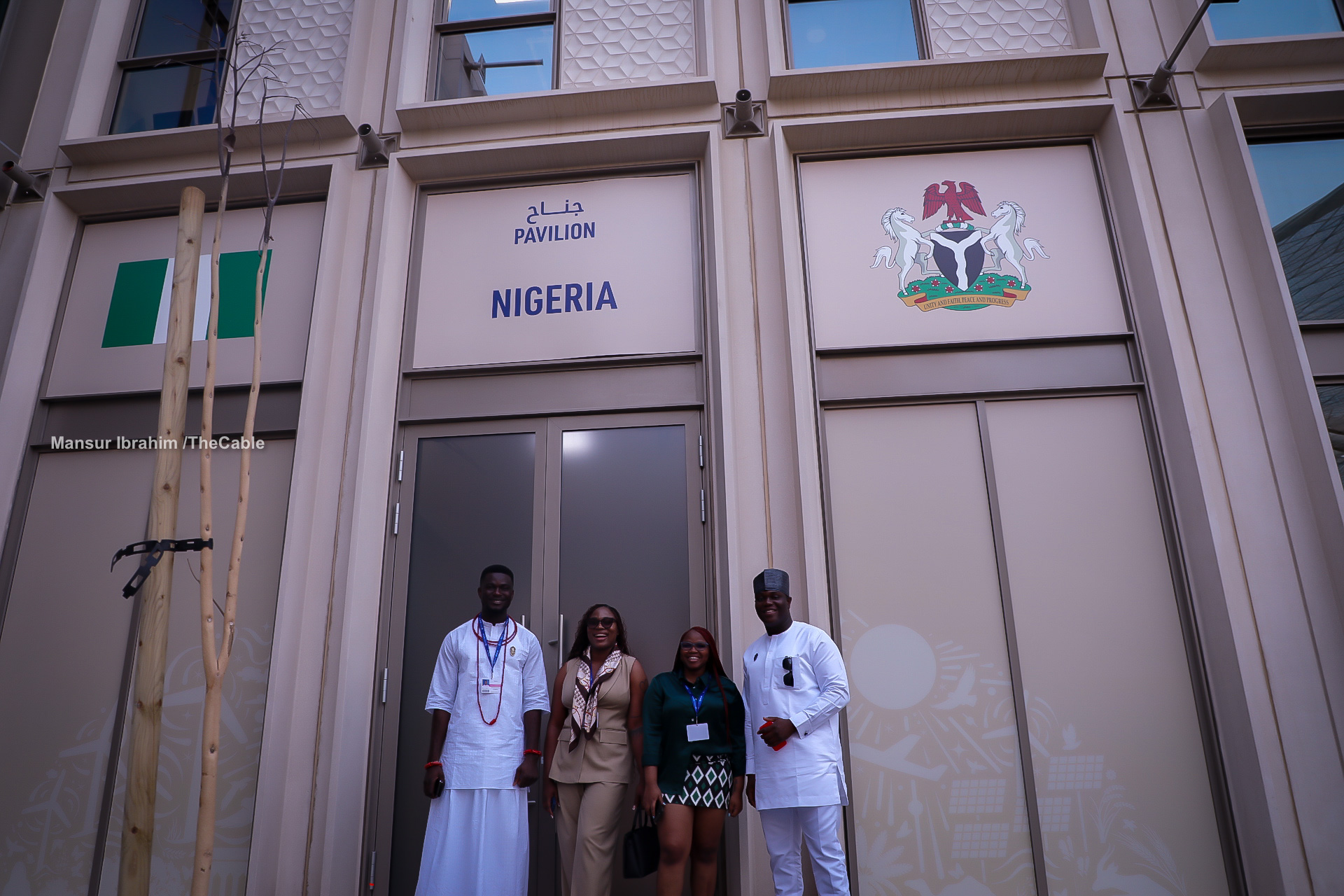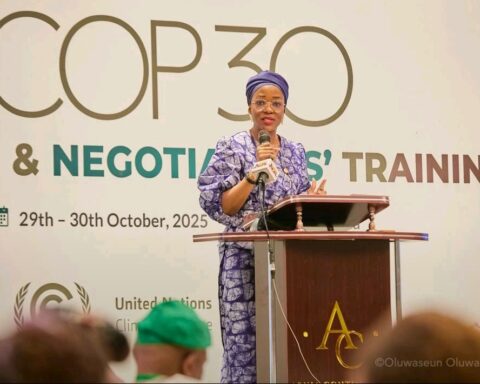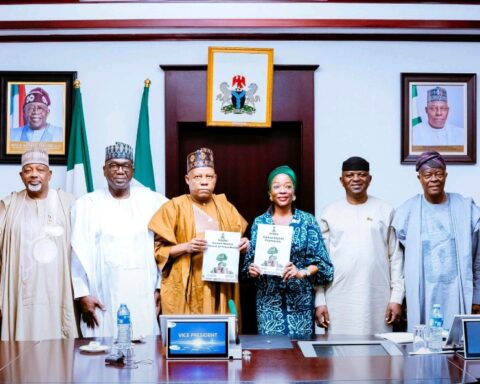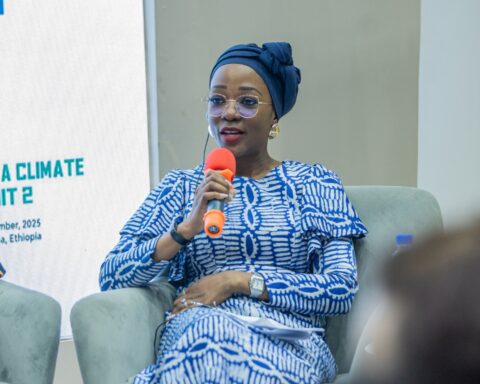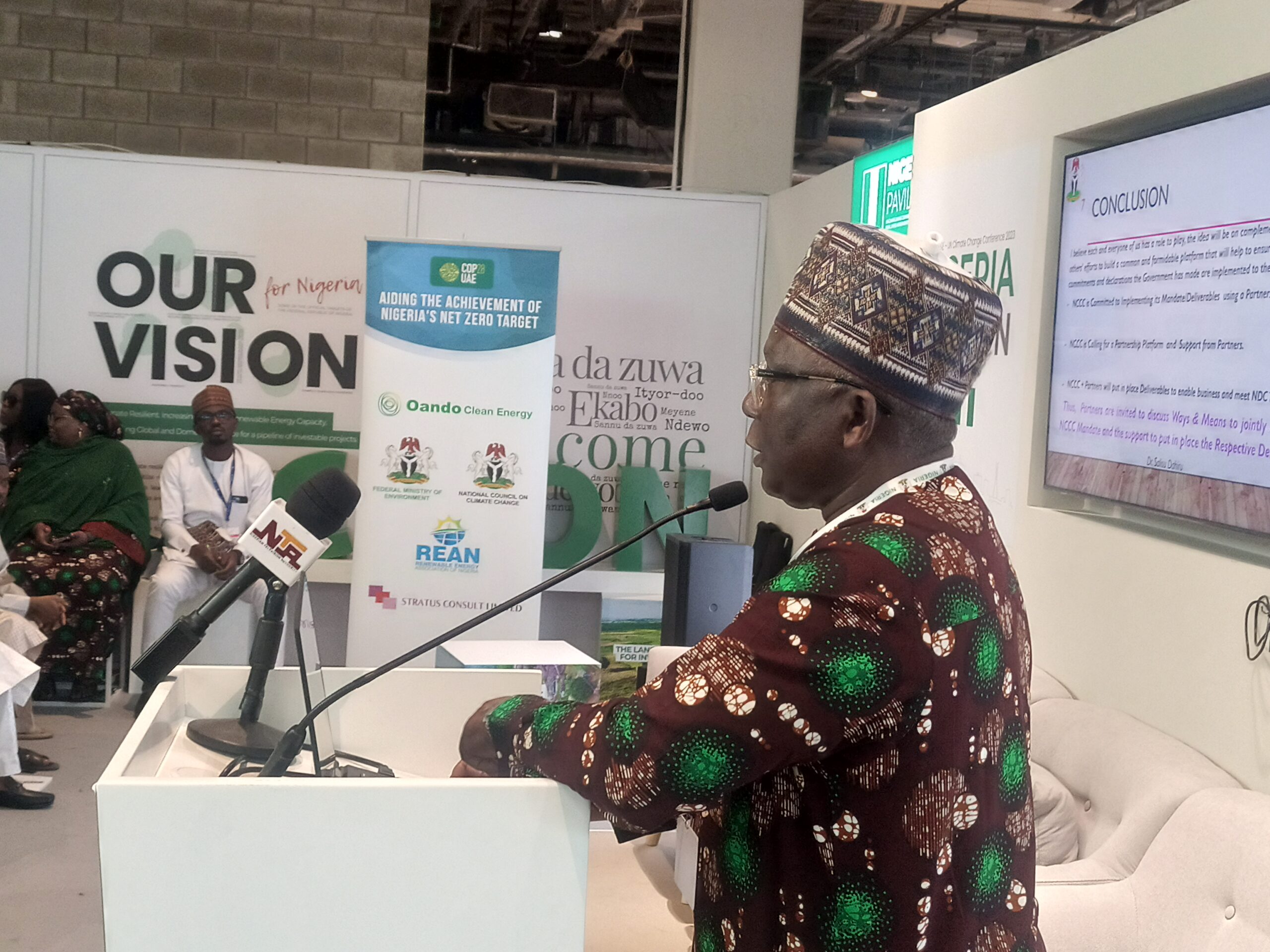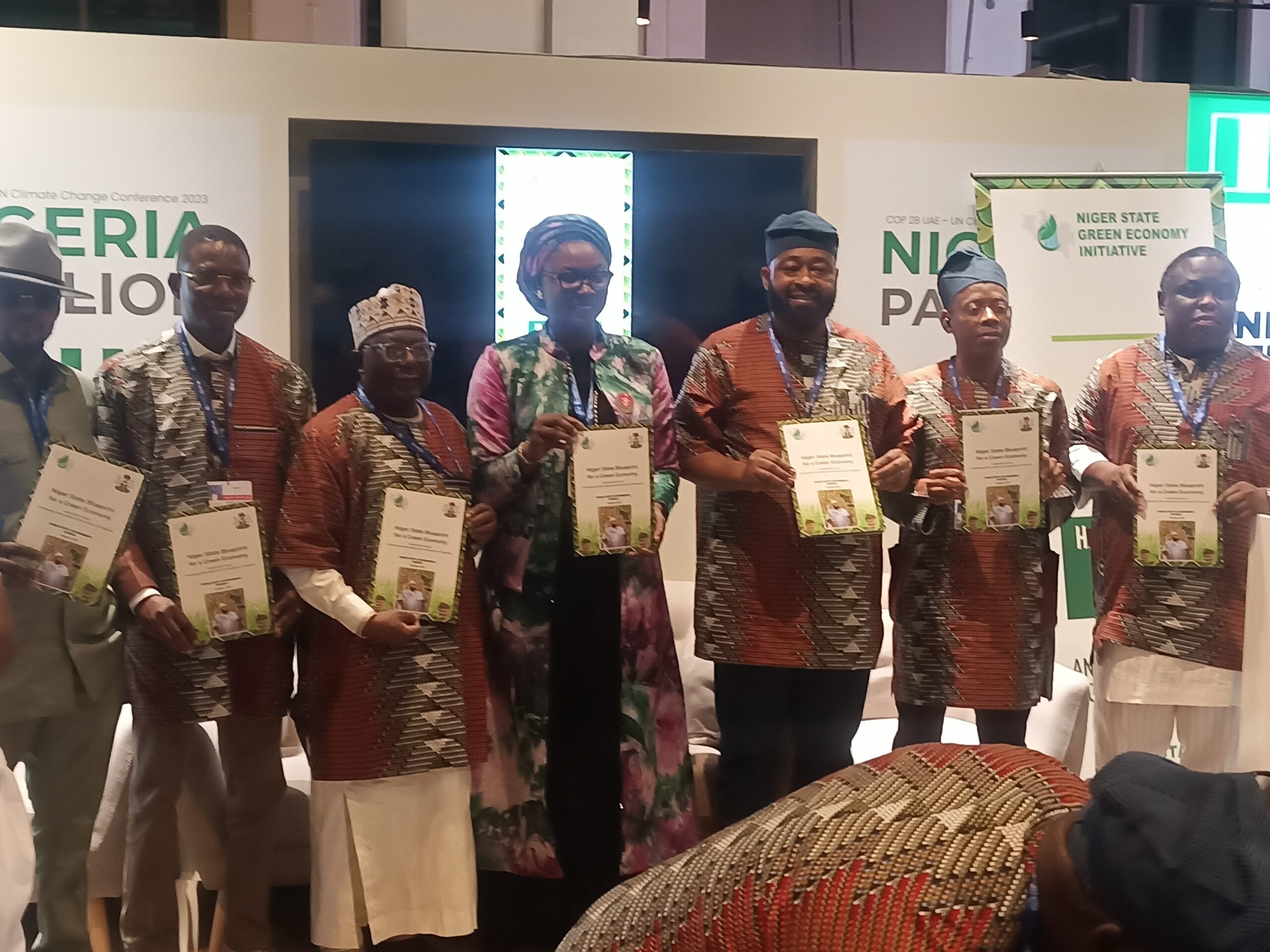As the international community gathers in Dubai, UAE, to address critical climate issues, the behavior of Nigerian officials at the global summit has become a focal point of concern among attendees.
Calls for accountability, cultural representation, and a more measured approach to international events resonate among those who hope for a positive reflection of Nigeria on the global stage.
The ongoing COP 28 in Dubai has become a stage for disappointment and resentment among Nigerians, particularly directed at officials of the National Council on Climate Change (NCCC).
Attendees at the event have raised concerns about the conduct of these officials, citing a lack of decorum and cultural representation, tarnishing the country’s image on the international stage.
Nigeria’s record-breaking delegation of 1411 individuals to the annual climate conference has been a subject of national criticism in the past one week.
Apart from government officials, staff of non-governmental organisations (NGOs) and celebrities are among those who registered to attend the annual climate change conference.
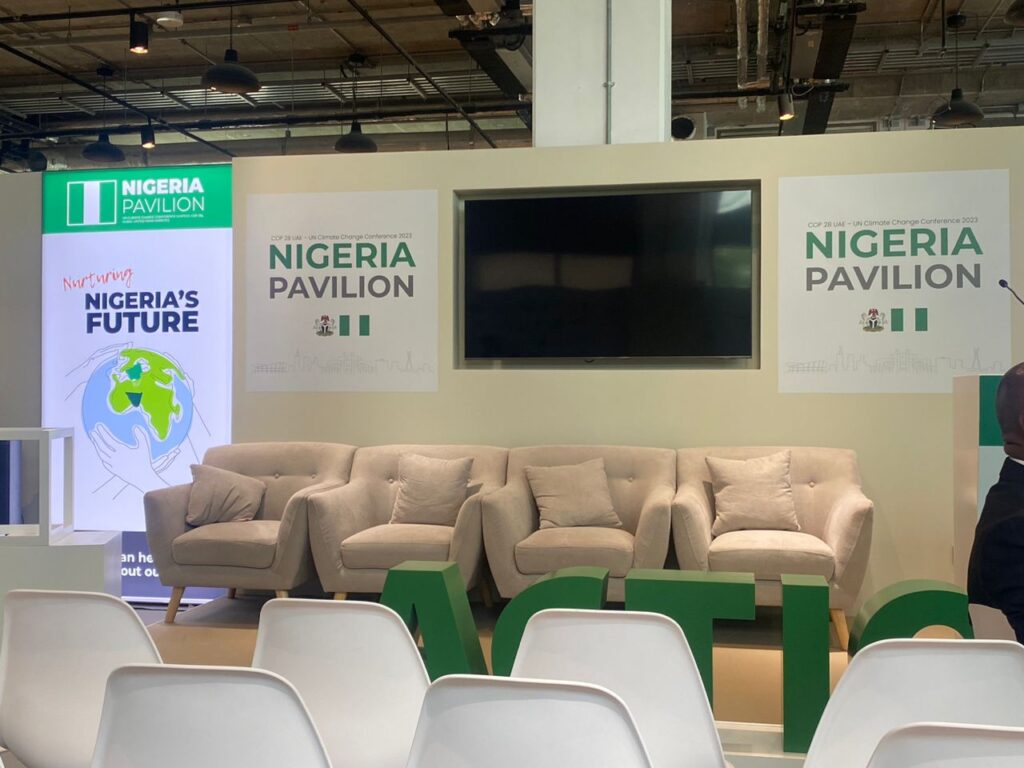
The majority of the NCCC officials, who are part of this over-bloated contingent, faced a backlash for their behavior at the Nigeria pavilion during the Nigeria Day celebration held on Wednesday, December 6, 2023, at the sidelines of the ongoing climate conference.
Critics lambasted NCCC officials for hoarding refreshments at the pavilion and distributing them selectively among themselves and those adorned in the Ankara attire for the day.
This behavior, reminiscent of festivities at Nigerian parties (Owambe), has drawn widespread condemnation, further fueling the debate over the necessity of such a large delegation.
Furera Mohammed, a Nigerian broadcast journalist attending COP for the first time, expressed her displeasure at the conduct of the officials.
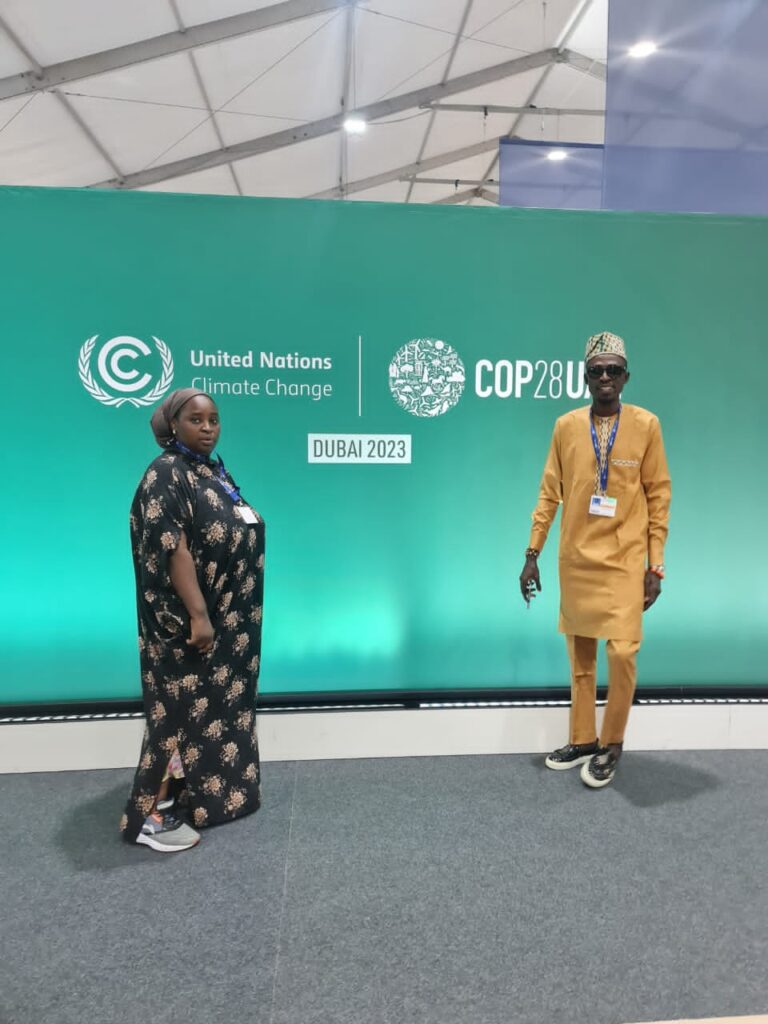
She highlighted the contrast with other pavilions that offered a more welcoming atmosphere, providing food, drinks, and souvenirs for every visitor to their pavilions without discrimination.
Mohammed recounted her experience at the Nigerian pavilion, stating, “Common water was not served.”
Another delegate Toyin Ayinde, who said he was officially registered as part of the United Kingdom delegate because he couldn’t get badge from Nigeria, characterized the officials’ behavior as a display of a poverty mentality, considering the fact that they were sponsored with government funds and collecting estacodes from Nigerian taxpayers’ money.
He called for a thorough screening process for individuals representing Nigeria at international events to ensure that thise tgat would project a more cultured image of the country are festured on the official delegation.
Zainab Abdullahi, another disappointed Nigerian, lamented the lack of meaningful activities during the Nigeria Day celebration that could expose the country’s culture to other nationalities.
This absence of cultural representation further fueled discontent among attendees.
“I learnt that everyone using the Nigerian pavilion paid millions to have their event staged at the pavilion, and not less than 20 events have been held at the pavilion.
“So they cannot say they are not making money that can be used to cater for the people visiting the pavilion.
“The people are the major problem of the country, the government issue is very minute, things need to be put in proper perspectives, if we are really serious as a people hoping for a great nation,” she said.
Journalists Laments Lack of Coordination
Journalists covering the event expressed their frustration over the absence of media coordination and daily briefings from the Nigerian delegation.
With no recognized media officer on the ground to facilitate the exchange of information, the 35 accredited journalists assigned to cover Nigeria’s activities at COP 28 have found themselves struggling to access vital updates and insights and catching up with multiple events taking place simultaneously.
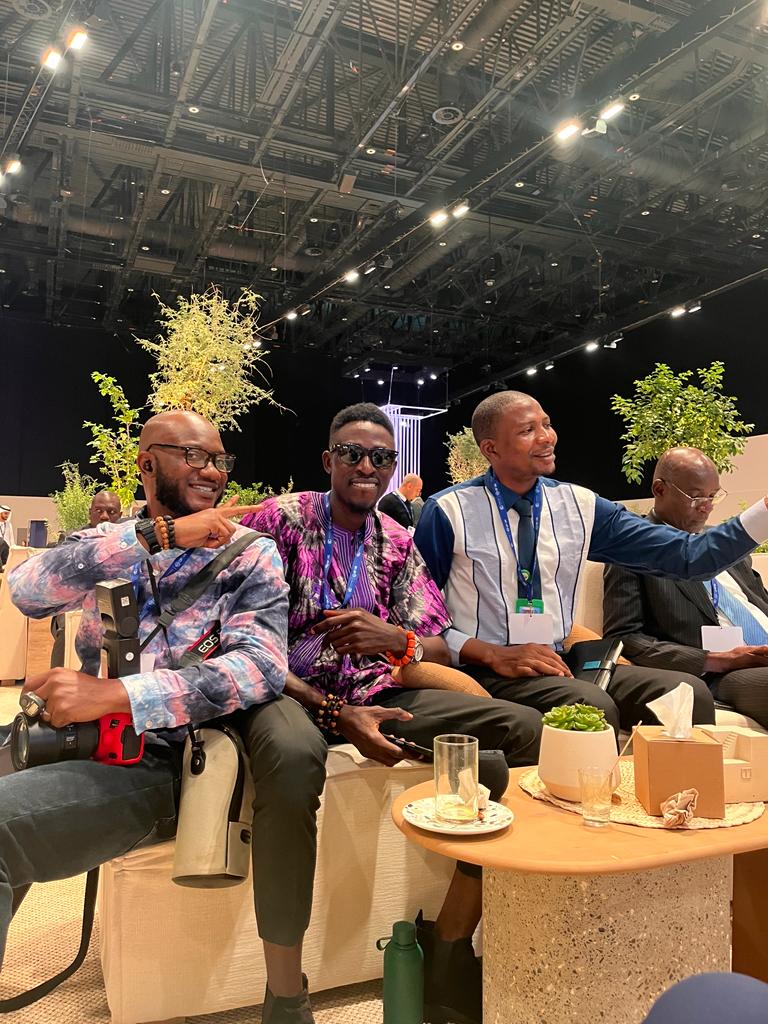
The absence of a designated media officer has left reporters feeling disconnected and uninformed about Nigeria’s engagements and contributions to the crucial climate summit.
Despite the significant role that the media plays in disseminating information to the public, the lack of coordination has hindered the journalists’ ability to effectively report on the developments and initiatives being undertaken by the Nigerian delegation.
Speaking on the matter, several journalists expressed their dismay at the situation.
“It’s incredibly challenging to gather accurate and timely information without a central point of contact or daily briefings from the Nigerian Climate Change Commission (NCCC),” one of the accredited reporters Samuel Ogunsona covering COP for the first time lamented.
“As journalists, we are here to ensure that the public remains informed about the decisions and actions taken at COP 28, but the absence of media coordination has made this task exceptionally difficult.”
The journalists emphasized the importance of having a designated media officer or representative from the NCCC to facilitate the exchange of information and provide regular updates on Nigeria’s engagements at the summit.
They stressed that such a role is essential for ensuring transparency and enabling the media to fulfill its role in keeping the public informed about the outcomes of COP 28.
The Journalists most of whom were self sponsored like myself and on ground for the entire duration of the negotiations express hope that their concerns will be addressed, and measures will be taken to establish a more structured and transparent system for media engagement at future international summits, including COP events.
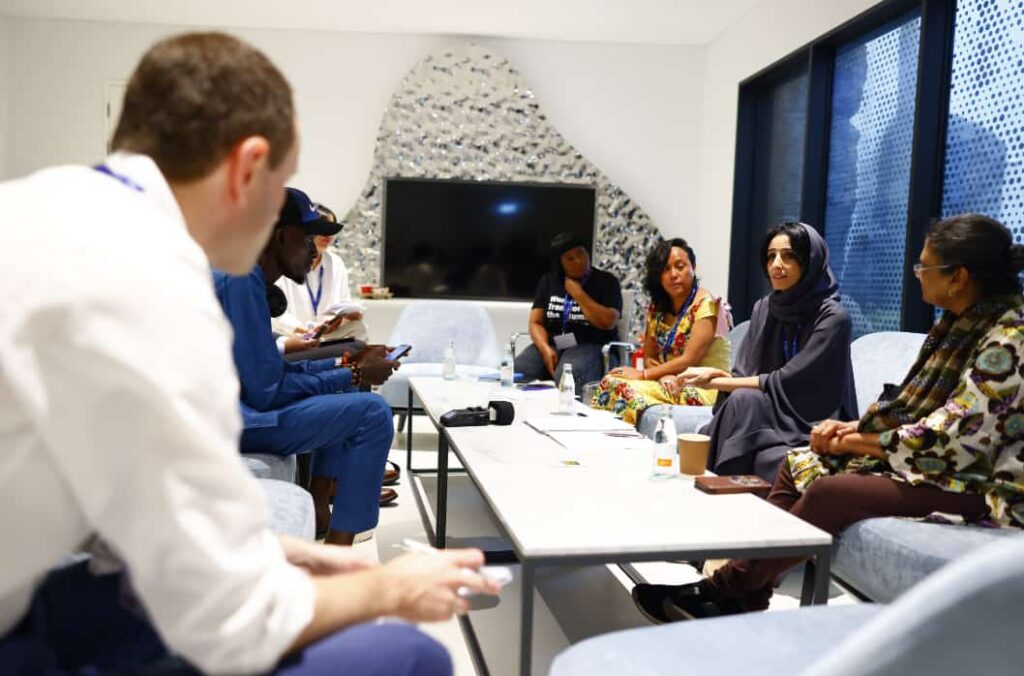
They however expressed their commitment to fulfilling their vital role in reporting on the global efforts to address climate change, despite the challenges.
Repeat Offenses:
The dismay expressed at COP 28 mirrors similar incidents at COP 27 in Sham El- Sheik, Egypt last year, which I also attended.
At that event, souvenirs were reportedly distributed among NCCC staff and a select few attendees, rather than being used as a cultural exchange tool.
These attitudes however, add to the growing discontent surrounding the conduct of NCCC officials at COP 28.
Allegations of racketeering surfaced, as the NCCC officials were accused of selling accreditation tags for exorbitant amounts.
One delegate who doesnt want to be named claimed that badges were being offered for prices ranging from N1 million to N3 million and the registration done clandestinely at the Nigerian pavilion.
According to him, “I paid N200,000 to extend my stay, I have three days badge initially but someone told me they are helping delegates extend their stay and directed me to a lady at the Nigerian pavilion.
” I transferred the money to her personal account, and she told me it is because of the person that introduced me reason she collected the money from me.
However I was with her when she told someone that needs the badge to bring N1 million naira.
” When the person exlaimed, she said they have sold the tag for N3 million,” he alleged.
This motive, it was gathered, was to facilitate the extension of shorter days badge holder access to the venue of the conference and also secure a free UAE visa for those back home.
These allegations of racketeering cannot be independently confirmed as of the time of writing this report, as no official of the council is ready to talk about it or grant an interview on the matter.
Speaking at the Nigeria day event, DG NCCC Dr Salisu Dahiru boss refuted a report going round that delegates had come for shopping and site seeing, saying business at climate conference was all round negotiation to secure commitment and funding for Nigeria’s climate action plan.
“No site seeing and shopping in the agenda of the council. All delegates are engaged in negotiations that will help Nigeria in seeking funding for its climate adaption plan,” he said.
Dare Akogun is a Broadcast Journalist covering the COP 28 for Sobi FM Ilorin.


